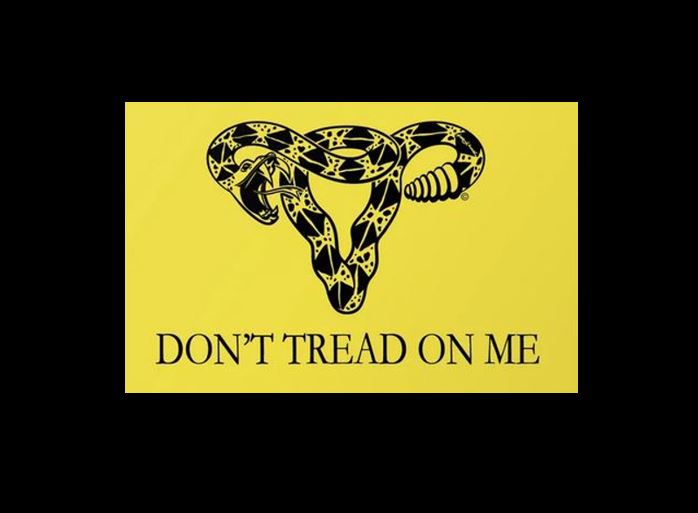
A Christian Conservative Goes to College, part 7 (Critical Thinking and the Abortion Debate)
“These men turn night into day; in the face of darkness they say, ‘Light is near’” (Job 17:12, NIV).
In my last column in this series I mentioned how our Critical Thinking (Philosophy 111) Class seemed geared towards attacking conservative positions and Christian beliefs. In particular, one of the major assignments was for the class to read two major pro-abortion arguments, A Defense of Abortion by Judith Jarvis Thomson[1] and The Moral and Legal Status of Abortion by Mary Anne Warren.[2] It was at least mentioned that there was a famous counter argument by American bioethicist Baruch Brody; though I could not find his work online.
“These men turn night into day; in the face of darkness they say, ‘Light is near’” (Job 17:12, NIV).
In my last column in this series I mentioned how our Critical Thinking (Philosophy 111) Class seemed geared towards attacking conservative positions and Christian beliefs. In particular, one of the major assignments was for the class to read two major pro-abortion arguments, A Defense of Abortion by Judith Jarvis Thomson[1] and The Moral and Legal Status of Abortion by Mary Anne Warren.[2] It was at least mentioned that there was a famous counter argument by American bioethicist Baruch Brody; though I could not find his work online.
Now in class the professor put forth what he termed “the generally accepted conservative argument against abortion” as follows: Premise 1. Innocent people have a right to life. Premise 2. It is seriously wrong to kill and innocent person. Premise 3. Abortion is the killing of an innocent person. Conclusion: Therefore abortion is a serious wrong. As per what we had learned in class, attack a premise and prove it incorrect, or not correct at all times, and the entire argument fails.
Enter Judith Jarvis Thomson who attacked the second premise (“It is seriously wrong to kill an innocent person.”) as being false at times. She attempted some parallel analogies, thought experiments, to try and support her argument. One involved someone being kidnapped and then having their body forcibly hooked up to the body of a comatose famous violinist in order to keep the violinist alive for nine months.[3] This scenario is supposed to be a thought experiment paralleling a scenario of a woman pregnant as a result of rape.
A second thought experiment involved being in a room with a giant baby. The baby was growing so large that if the other person did not kill it, she would be crushed to death. This was supposed to parallel the scenario of a pregnancy endangering the life of the mother.
Another thought experiment involved floating “people-seeds” that “drift about in the air like pollen, and if you open your windows, one may drift in and take root in your carpets or upholstery”; though one might use all manner of prevention and precaution to avoid one of these people seeds floating in and taking root, one still might take root. This scenario was an attempt to parallel a woman becoming pregnant despite the use of birth control. Thomson’s conclusion was that an innocent person’s right to life does not superimpose itself on someone else or oblige them to be a savior.[4]
But Judith Jarvis Thomson has some presuppositions which she brings to the argument, extremely important and improvable presuppositions.[5] For instance, in her giant baby scenario she tells us, “[What] we have to keep in mind is that the mother and the unborn child are not like two tenants in a small house which has, by an unfortunate mistake, been rented to both: the mother owns the house” (emphasis mine). In the margin of her argument I wrote, “What if God owns the house?” She later, essentially acknowledges my thought by writing, “I suppose that in some views of human life the mother’s body is only on loan to her, the loan not being one which gives her any prior claim to it…. But I shall simply ignore this possibility. My own view is that if a human being has any just, prior claim to anything at all, he has a just, prior claim to his own body” (emphasis added).
Presupposition: The mother owns the house (i.e. the mother owns her own body). Perhaps criminals and murderers could also argue that they own their own bodies and due to this fact no one has a right to throw them into prison or put them to death. However, even many left leaning secularists, some who will say that laws are based upon a societal compact, will argue that foreigners are entitled to the same protections under the law, though they are not citizens, but they never seem to argue that this “foreigner” (if you will), this “innocent person” who has not yet entered into the societal compact, has those same rights… but I digress.
So who owns the house?
“Acknowledge that the Lord is God! He made us and we belong to him; we are his people, the sheep of his pasture” (Psalm 100:3).
Here is one of the foundational, irreconcilable differences between believers and non-believers. God is Creator, Master, Owner, the One to Whom we are all accountable. As the King James words the above verse: “It is he that hath made us, and not we ourselves…”
“I made the earth,” says the LORD, “I created the people who live on it” (Isaiah 45:12).
Read the “No bedrock foundational premise for the Materialist/Naturalist” comment by a friend of mine following my previous column in this series.[6] In essence, without belief in Creator God as a foundational principle, then “It’s all about ME” vs. “It’s all about US.” My friend also writes, “Philosophers call premises that they wish to stop arguing the truth of, and just accept as true, properly basic.” Obviously Thomson considers human beings owning their own body some kind of foundational premise that she is unwilling to even consider, as she writes, “I shall simply ignore this possibility.” But we Christians believe that
“You… our Lord and God… created all things, and because of your will they existed and were created!” (Revelation 4:11).
Of Christ: “All things were created through him and for him” (Colossians 1:16).
For Christians, especially:
“[You] are not your own…. you were bought at a price. Therefore glorify God with your body” (1 Corinthians 6:19-20).
So with different foundational principles and beliefs, we will never see eye to eye on issues like this… and thus Thomson continues to make her argument: “I suppose we may take it as a datum that in the case of pregnancy due to rape the mother has not given the unborn person a right to the use of her body for food and shelter,” she writes. “Indeed, in what pregnancy could it be supposed that the mother has given the unborn person such a right? It is not as if there are unborn persons drifting about the world, to whom a woman who wants a child says I invite you in.” My note in the margin reads, essentially, “Pregnancy usually results from her inviting someone in.”
Thomson anticipates what the conservative might say: “Suppose a woman voluntarily indulges in intercourse, knowing of the chance it will issue in pregnancy, and then she does become pregnant; is she not in part responsible for the presence, in fact the very existence, of the unborn person inside? No doubt she did not invite it in. But doesn’t her partial responsibility for its being there itself give it a right to the use of her body?” (She’s rooted to her presupposition.) She later writes, “[This] argument would give the unborn person a right to its mother’s body only if her pregnancy resulted from a voluntary act, undertaken in full knowledge of the change a pregnancy might result from it.” Is she saying that if someone undertook the voluntary act without “full knowledge” of what the result might be, then the child would not have a right to its mother’s body?
Let me ask this, if someone shoots a gun into the air without realizing (without “full knowledge”) that bullets eventually come back down to earth, and that bullet hurts or kills someone, are they responsible for their act? Do they have to live with the consequences of the act? Might they be required to have their body put in a cell for a period of time against their wishes even though they have a right to their own body? It could be argued that engaging in intercourse presupposes pregnancy and a child’s “right to its mother’s body”. (I’m using her wording now.) Of course, not everyone appreciates the consequences and repercussions and natural results of their actions. (More on this in a moment).
Regarding her argument about the “people-seeds” floating in windows. She writes, “Does the person-plant who now develops have a right to use your house? Surely not—despite the fact that you voluntarily opened your windows…”
My response? “How about this example: You live in a country where it is known, in fact it is law, that if you leave your doors or windows open, even unlocked, any person who manages to get inside your home has the right to stay there and be supported by you. If they leave of their own accord you are not bound, otherwise you are bound by the very fact that you left a door or window open or unlocked. But you enjoyed leaving doors and widows open. It brought you a great deal of pleasure. Sure, you would leave the screens in, but the windows were still open. Now, in retrospect, with some unwanted person living in your house, you decide that it was all a big mistake on your part. You now realize that one can never be safe enough. You played the percentages, thinking it would not happen to you… You’d done it hundreds of times before and it had never happened, but this time it did. Now you desire the right to kill this person living in your house…” and you’ll get a lot of lobbyists to petition Congress, you’ll take it to the highest court in the land, all the while finding a bunch of “wise” people to write thought experiments excusing what you’ve done.
“For the time will come when they will not endure sound doctrine; but wanting to have their ears tickled, they will accumulate for themselves teachers in accordance to their own desires” (2 Timothy 4:3, NASB).
Do we sometimes have to live with the results of our actions, even if we do not desire them? I may desire never to become a paraplegic (like a woman who desires to not get pregnant) while continuing to climb mountains (like a woman who continues to have sex). Certainly I may climb with ropes as a safety precaution (like a woman who uses birth control); yet all sorts of things are still out of my control. I can’t control rock slides, anomalies in the rope, etc. There is always a possibility that I could fall and become a paraplegic. And no matter how many safety precautions a man and woman take, there is always the “chance” that a pregnancy might result.
“The dice are thrown into the lap, but their every decision is from the Lord” (Proverbs 16:33).
“Many are the plans in a man’s heart, but it is the LORD’s purpose that prevails” (Proverbs 19:21, NIV).
Ironically, towards the end of her argument, she quotes Jesus’ parable of the Good Samaritan. She then writes, “The Good Samaritan went out of his way, at some cost to himself, to help out one in need of it. We are not told what the options were, that is, whether or not the priest and the Levite could have helped by doing less than the Good Samaritan did, but assuming they could have, then the fact that they did nothing at all shows they were not even Minimally Decent Samaritans, not because they were not Samaritans, but because they were not even minimally decent.” But within two paragraphs she is saying, “it is not morally required of anyone that he give long stretches of his life—nine years or nine months—to sustaining the life of a person who has no special right (we were leaving open the possibility of this) to demand it.” Maybe I’m missing something, but I just don’t get it.
So, perhaps the pregnant mother does not have to give her entire life, or even nine years of her life, to this person, to her child, her offspring, but wouldn’t it be “minimally decent” to give nine months of her life for her own offspring, even if afterwards she gave the baby up for adoption? It appears the mother, in some of Thomson’s analogies, fails at even being minimally decent.
“[Because] lawlessness will increase so much, the love of many will grow cold” (Matthew 24:12); people will be “without natural affection… lovers of pleasures more than lovers of God” (2 Timothy 3:3, KJV).
“For although they knew God, they did not glorify him as God or give him thanks, but they became futile in their thoughts and their senseless hearts were darkened. Although they claimed to be wise, they became fools and exchanged the glory of the immortal God for an image resembling mortal human beings” (Romans 1:21-23).
_______________________
For a follow up to this column go to “Critical Thinking and the Abortion Debate Continued”
Feel free to peruse my other columns at http://blogs.bible.org/blog/26077
[1] Read it here: http://spot.colorado.edu/~heathwoo/Phil160,Fall02/thomson.htm
[2] Read it here: https://spot.colorado.edu/~norcross/Ab3.pdf
[3] This argument has become known as “the Violinist Argument.” See http://en.wikipedia.org/wiki/Violinist_%28thought_experiment%29
[4] “Savior” is my wording.
[5] “[A] a presupposition… is an implicit assumption about the world or background belief relating to an utterance whose truth is taken for granted in discourse” (http://en.wikipedia.org/wiki/Presupposition).



